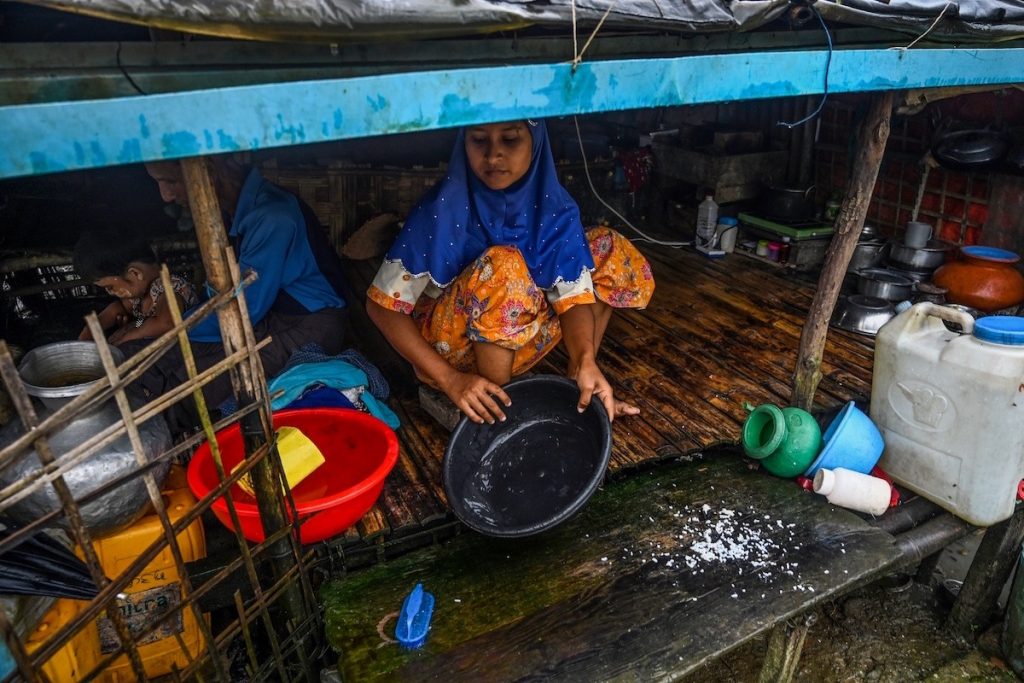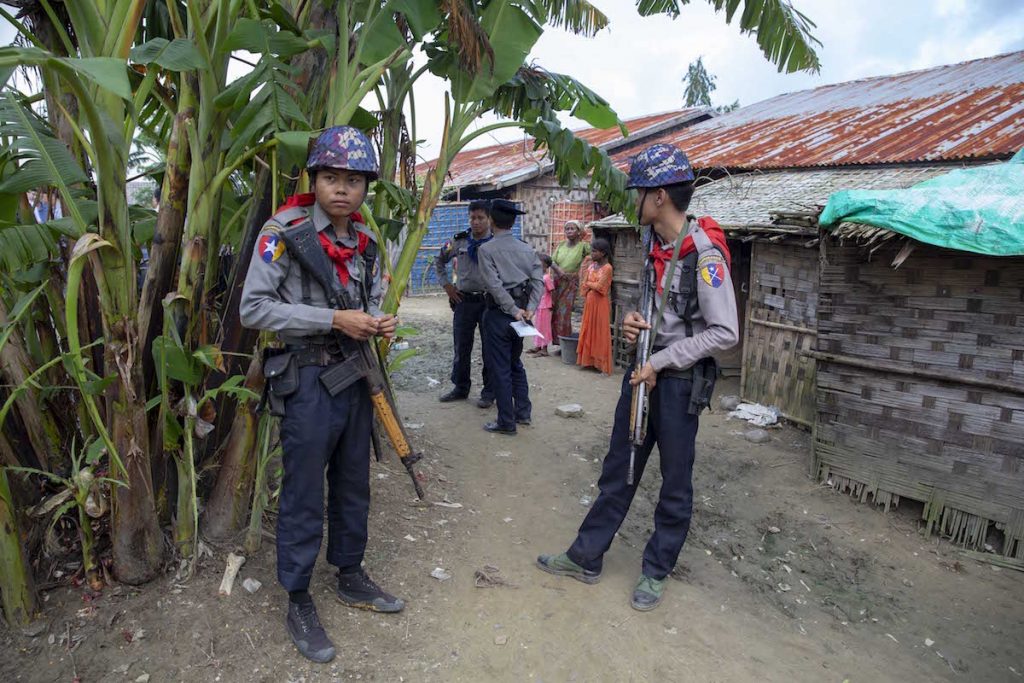
An international rights group has called on the Myanmar government to urgently end the arbitrary and indefinite detention of thousands of Rohingya Muslims in camps in Rakhine State.
In a statement, Human Rights Watch (HRW) described the camps — holding approximately 130,000 people — as squalid and abusive.
A 169-page HRW report documents the “inhuman conditions” in the 24 camps and camp-like settings in central Rakhine State, was released in Bangkok on Oct. 8.
HRW said that recent measures to ostensibly “close” the camps appear designed to make permanent the segregation and confinement of Rohingya and several thousand Kaman Muslims, whom authorities have interned in open-air detention camps since their displacement in a 2012 ethnic cleansing campaign.
Camp detainees face higher rates of malnutrition, waterborne illnesses, and child and maternal mortality than their ethnic Rakhine neighbors. Accounts of preventable deaths were common. “The camp is not a livable place for us,” a Rohingya man told HRW.
The rights group said conditions that Rohingya Kaman Muslims face include a limitation on livelihoods, movement, education, health care, and adequate food and shelter. These, HRW said, have been compounded by widening constraints on humanitarian aid, which Rohingya depend on for survival.
“The Myanmar government has interned 130,000 Rohingya in inhuman conditions for eight years, cut off from their homes, land, and livelihoods, with little hope that things will improve,” said Shayna Bauchner, Asia researcher and author of the report.
“The government’s claims that it’s not committing the gravest international crimes will ring hollow until it cuts the barbed wire and allows Rohingya to return to their homes, with full legal protections,” Bauchner.
HRW said that the abuses against the Rohingya amount to the crimes against humanity of apartheid and persecution. Ethnic cleansing and internment since 2012 laid the groundwork for the military’s mass atrocities in 2016 and 2017 in northern Rakhine State, which also amount to crimes against humanity, and possibly genocide.

Authorities used the 2012 violence against Rohingya communities as a pretext to segregate and confine a population it had long sought to remove from the country. A UN officer who worked in Rakhine State at the time described the government’s approach in 2012: “Corner them, fence them, confine the ‘enemy.’” The few thousand Rakhine Buddhists displaced in 2012 have since returned to their homes or resettled.
HRW said that the government announced in April 2017 that it would begin closing the camps. In November 2019, it adopted the “National Strategy on Resettlement of Internally Displaced Persons (IDPs) and Closure of IDP Camps,” which it claimed would provide sustainable solutions. However, the process has entailed constructing permanent structures near the current camp locations, further entrenching segregation and denying the Rohingya the right to return to their land, reconstruct their homes, regain work, and reintegrate into Myanmar society.
“Nobody has been able to return, nobody has been compensated,” a Kaman community leader said. “We keep asking, even still we are asking the government for our land.” In the three camps declared “closed,” there has been no notable increase in freedom of movement or access to basic services.
The sense of hopelessness in the camps is pervasive. Not one Rohingya interviewed by Human Rights Watch expressed a belief that their indefinite detention may end or that their children could one day live, learn, and move freely. “I think the system is permanent,” a Rohingya woman said. “Nothing will change. It is only words.”
The COVID-19 pandemic and escalating fighting between the Myanmar military and Arakan Army, an ethnic Rakhine armed group, have heightened the Rohingya’s extreme vulnerability over the past months. General elections are set for November, but most Rohingya have been barred from running for office and stripped of their right to vote.
Across the border in Bangladesh, nearly one million Rohingya refugees, most of whom fled the Myanmar military’s atrocities after August 2017, live in overcrowded, flood-prone camps. The Myanmar government has asserted that it is ready to repatriate them, yet the eight-year confinement of 130,000 Rohingya in central Rakhine State undermines such claims.
Refugees in Bangladesh have outlined their conditions for return, including safety and freedom for the Rohingya in central Rakhine camps. “We know that thousands of Rohingya back in Myanmar are still in detention camps,” said a Rohingya refugee. “If those people are released and return to their villages, then we will know it’s safe to return, and we’ll go back home.”
Source: Licas Philippines
0 Comments